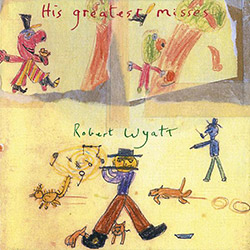
Originally released in 2004 in Japan, this compilation covers songs from Soft Machine legend Robert Wyatt's solo career, from albums back to Rock Bottom through Cuckooland, sequenced non-chronologically reflecting the depth of interest, excitement & pathos of his remarkable career, one of rock's most unconventional and brilliant songwriters and singers.
Out of Stock
Quantity in Basket: None
Log In to use our Wish List
Shipping Weight: 3.00 units
Sample The Album:
Robert Wyatt-composer, drums, bass guitar, keyboards, mouth percussion, percussion, piano, primary artist, trumpet, vocals, voices
Laurie Allan-drums
Gary Azukx-Djembe
Ivor Cutler-baritone concertina, voices
Brian Eno-arranger, choir/chorus, synthesizer
Jamie Johnson-guitar
Bill MacCormick-bass guitar
Phil Manzanera-guitar
Nick Mason-drums
Chucho Merchan-drums, bass guitar
Mike Oldfield-guitar
Richard Sinclair-bass guitar
Yaron Stavi-double bass
Paul John Weller-guitar, vocal harmony
Annie Whitehead-trombone
Click an artist name above to see in-stock items for that artist.
UPC: 5034202207320
Label: Domino Record Co.
Catalog ID: CD-REWIG-73
Squidco Product Code: 29708
Format: CD
Condition: New
Released: 2010
Country: USA
Packaging: Digipack
"A compilation spanning Robert Wyatt's decades-long career. The collection, originally released as a Japanese edition, includes selections dating from Rock Bottom (1974) to Cuckooland (2003), although its running order is non-chronological. This makes the subtle point that Wyatt's recordings are best considered as a non-linear catalogue - this is a world through which the listener can move at any pace in any direction."-Domino
"This compelling introduction to Robert Wyatt's career was initially released in 2004 - by, in Wyatt's words, "a thoughtful chap in Japan brought these tunes together as a sort of canter around my back-catalogue". A canter it is, through the unique rhythms and cadences of the former Soft Machine vocalist's musical world, one that takes in tender pop, light prog and gentle jazz, plus the mesmerising innocence, and bluntness, of his rough, Kentish accent.
But to call this set His Greatest Misses is a little disingenuous: two hits nestle in this record, both of them written by other people. Wyatt's take on The Monkees' "I'm a Believer" was a hit single in 1975, after he returned to making music after the fall from a window that left him paralysed from the waist down. Thirty-five years later, it's still a delicious confection: Wyatt delivering his message of love plainly and frankly as fidgety guitars and Motown pianos add colour to the ends of his lines. His version of "Shipbuilding", which Elvis Costello and Clive Langer wrote for him in 1982, is even better: he brings an almost unbearable rawness to the story of the Falklands War, returning work to the shipyards but threatening death to men at sea. Hearing his trebly warble deliver everyday phrases like "Well, I ask you", then tell us about the "people who get killed", you are listening to one of pop's greatest performances.
But Wyatt's own material is also more accessible than many would imagine. "Sea Song", from his debut album Rock Bottom, is free-form in melody, but full of gorgeous hooks and touching lyrics ("You're terrific when you're drunk / I like you mostly late at night / you're quite all right"). Woodwind-heavy early track "Solar Flares" is propulsive and addictive; 1992's "Heaps of Sheeps" teems with perky keyboards and backing vocals; while "Mister E" from 2003's Mercury-nominated Cuckooland plays like a duet from a Hollywood film.
Nevertheless, there's plenty of oddness here too - Muddy Mouse (b), a dissonant minute-long tale about what "cubs and brownies do at night after a boring day", being a perfect example. But even here, tenderness and warmth bubbles through every second and syllable, reminding us of the palpable greatness of this Great British Eccentric."-Jude Rogers, BBC
Also available on vinyl LP.Get additional information at BBC
Artist Biographies
• Show Bio for Robert Wyatt "Robert Wyatt (born Robert Wyatt-Ellidge, 28 January 1945) is an English musician, and founding member of the influential Canterbury scene band Soft Machine, with a long and distinguished solo career. He is married to English painter and songwriter Alfreda Benge. Wyatt was born in Bristol. His mother was Honor Wyatt, a journalist with the BBC, and his father, George Ellidge, was an industrial psychologist. Wyatt had two half-brothers from his parents' previous marriages, Honor Wyatt's son, actor Julian Glover, and George Ellidge's son, press photographer Mark Ellidge. His parents' friends were "quite bohemian", and his upbringing was "unconventional". Wyatt said "It seemed perfectly normal to me. My father didn't join us until I was six, and he died ten years later, having retired early with multiple sclerosis, so I was brought up a lot by women." Wyatt attended the Simon Langton Grammar School for Boys, Canterbury and as a teenager lived with his parents in Lydden near Dover, where he was taught drums by visiting American jazz drummer George Neidorf. It was during this period that Wyatt met and became friends with expatriate Australian musician Daevid Allen, who rented a room in Wyatt's family home. In 1962, Wyatt and Neidorf moved to Majorca, living near the poet Robert Graves. The following year, Wyatt returned to England and joined the Daevid Allen Trio with Allen and Hugh Hopper. Allen subsequently left for France, and Wyatt and Hopper formed the Wilde Flowers, with Kevin Ayers, Richard Sinclair and Brian Hopper. Wyatt was initially the drummer in the Wilde Flowers, but following the departure of Ayers, he also became lead singer. In 1966, the Wilde Flowers disintegrated, and Wyatt, along with Mike Ratledge, was invited to join Soft Machine by Kevin Ayers and Daevid Allen. Wyatt both drummed and shared vocals with Ayers, an unusual combination for a stage rock band. In 1970, after chaotic touring, three albums and increasing internal conflicts in Soft Machine, Wyatt released his first solo album, The End of an Ear, which combined his vocal and multi-instrumental talents with tape effects. A year later, Wyatt left Soft Machine and, besides participating in the fusion bigband Centipede and drumming at the JazzFest Berlin's New Violin Summit, a live concert with violinists Jean-Luc Ponty, Don "Sugarcane" Harris, Michał Urbaniak and Nipso Brantner, guitarist Terje Rypdal, keyboardist Wolfgang Dauner and bassist Neville Whitehead, formed his own band Matching Mole (a pun, "machine molle" being French for 'Soft Machine'), a largely instrumental outfit that recorded two albums. In 1966, the Wilde Flowers disintegrated, and Wyatt, along with Mike Ratledge, was invited to join Soft Machine by Kevin Ayers and Daevid Allen. Wyatt both drummed and shared vocals with Ayers, an unusual combination for a stage rock band. In 1970, after chaotic touring, three albums and increasing internal conflicts in Soft Machine, Wyatt released his first solo album, The End of an Ear, which combined his vocal and multi-instrumental talents with tape effects. A year later, Wyatt left Soft Machine and, besides participating in the fusion bigband Centipede and drumming at the JazzFest Berlin's New Violin Summit, a live concert with violinists Jean-Luc Ponty, Don "Sugarcane" Harris, Michał Urbaniak and Nipso Brantner, guitarist Terje Rypdal, keyboardist Wolfgang Dauner and bassist Neville Whitehead, formed his own band Matching Mole (a pun, "machine molle" being French for 'Soft Machine'), a largely instrumental outfit that recorded two albums. The injury led Wyatt to abandon the Matching Mole project, and his rock drumming (though he would continue to play drums and percussion in more of a "jazz" fashion, without the use of his feet). He promptly embarked on a solo career, and with musician friends (including Mike Oldfield, Ivor Cutler and Henry Cow guitarist Fred Frith) released his solo album Rock Bottom on 26 July 1974. The album, the title of which was an oblique reference to his paraplegia, was largely composed prior to Wyatt's accident. The album was met with mostly positive reviews. Two months later Wyatt put out a single, a cover version of "I'm a Believer", which hit number 29 in the UK chart. Both were produced by Pink Floyd drummer Nick Mason. There were strong arguments with the producer of Top of the Pops surrounding Wyatt's performance of "I'm a Believer," on the grounds that his use of a wheelchair 'was not suitable for family viewing', the producer wanting Wyatt to appear on a normal chair. Wyatt won the day and 'lost his rag but not the wheelchair'. A contemporary issue of New Musical Express featured the band (a stand-in acting for Mason), all in wheelchairs, on its cover. Wyatt subsequently sang lead vocals on Mason's first solo album Fictitious Sports in 1981 (with songwriting credits going to Carla Bley). His follow-up single, a reggae ballad remake of Chris Andrews's hit "Yesterday Man", again produced by Mason, was eventually given a low-key release, "the boss at Virgin claiming that single was 'lugubrious', the delay and lack of promotion denting Wyatt's chances of a follow-up hit." Wyatt's next solo album, Ruth Is Stranger Than Richard (1975), produced by Wyatt apart from one track produced by Mason, was more jazz-led, with free jazz influences. Guest musicians included Brian Eno on guitar, synthesizer and "direct inject anti-jazz ray gun". Wyatt went on to appear on the fifth release of Eno's Obscure Records label, Jan Steele/John Cage: Voices and Instruments (1976), singing two Cage songs. Throughout the rest of the 1970s Wyatt guested with various acts, including Henry Cow (documented on their Concerts album), Hatfield and the North, Carla Bley, Eno, Michael Mantler, and Roxy Music guitarist Phil Manzanera, contributing lead vocals to lead track "Frontera", from Manzanera's 1975 solo debut Diamond Head. In 1976 he was featured vocalist on Michael Mantler's settings of the poems of Edward Gorey, appearing alongside Terje Rypdal (guitar) Carla Bley (piano, clavinet, synthesizer), Steve Swallow (bass) and Jack DeJohnette (drums) on the album 'The Hapless Child and Other Stories'. His solo work during the early 1980s was increasingly politicised, and Wyatt became a member of the Communist Party of Great Britain. In 1983, his original version of Elvis Costello and Clive Langer's Falklands War-inspired song "Shipbuilding", which followed a series of political cover-versions (collected as Nothing Can Stop Us), reached number 35 in the UK Singles Chart and number 2 in John Peel's Festive Fifty for tracks from that year. In 1984 Wyatt provided guest vocals, along with Tracey Thorn and Claudia Figueroa, on "Venceremos" (We Will Win), a song expressing political solidarity with Chilean people suffering under Pinochet's military dictatorship, released as a single by UK soul-jazz dance band Working Week, also included on an album released the following year. In 1985 Wyatt released Old Rottenhat, his first album of original songs since Rock Bottom. The album featured strongly political songs with relatively sparse arrangements played largely by Wyatt alone. In the late 1980s, after collaborations with other acts such as News from Babel, Scritti Politti, and Japanese recording artist Ryuichi Sakamoto, he and his wife Alfreda Benge spent a sabbatical in Spain, before returning in 1991 with a comeback album Dondestan. His 1997 album Shleep was also praised. In 1999 he collaborated with the Italian singer Cristina Donà on her second album Nido. In the summer of 2000 her first EP Goccia was released and Wyatt made an appearance in the video of the title track. Wyatt contributed "Masters of the Field", as well as "The Highest Gander", "La Forêt Rouge" and "Hors Champ" to the soundtrack of the 2001 film Winged Migration. He can be seen in the DVD's Special Features section, and is praised by the film's composer Bruno Coulais as being a big influence in his younger days. [...]" ^ Hide Bio for Robert Wyatt • Show Bio for Brian Eno "Brian Eno, in full Brian Peter George St. John le Baptiste de la Salle Eno, (born May 15, 1948, Woodbridge, Suffolk, Eng.), British producer, composer, keyboardist, and singer who helped define and reinvent the sound of some of the most popular bands of the 1980s and '90s and who created the genre of ambient music. While an art student in the late 1960s, Eno began experimenting with electronic music, and in 1971 he joined the fledgling band Roxy Music as keyboardist and technical adviser. A rivalry with singer Bryan Ferry led Eno to leave the group in 1973, whereupon he launched a solo career. No Pussyfooting (1973), a collaboration with guitarist Robert Fripp from King Crimson, used tape-echo and tape-delay techniques to create new sounds and reached the Top 30 in Britain. Eno's next album, Here Come the Warm Jets (1973), was soon followed by the proto-punk single "Seven Deadly Finns." In the mid-1970s Eno began developing his theory of ambient music, creating subtle instrumentals to affect mood through sound. Albums such as Discrete Music (1975), Music for Films (1978), and Music for Airports (1979) exemplified this approach. During this period Eno also began producing albums for other artists, and his experimental approach to music making was well suited to such alternative performers as Devo, Ultravox, and David Bowie (especially on Bowie's trilogy of albums recorded primarily in Berlin). Although Eno's work was influential, it was not until his collaborations with Talking Heads and U2 that mainstream listeners became familiar with his sound, most notably on Talking Heads' Top 20 album Remain in Light (1980) and U2's chart-topping albums Unforgettable Fire (1984), The Joshua Tree (1987), and Achtung Baby (1991). Throughout the 1990s, Eno joined a number of visual artists to provide sound tracks to installation pieces, and in 1995 he worked with Laurie Anderson on Self Storage, a series of installations housed in individual lockers at a London storage facility. Anderson provided the vocals for a track on Eno's electronic album Drawn from Life (2000), and Eno followed with a rare vocal album of his own, Another Day on Earth (2005). He returned to the producer's chair for Paul Simon's critically lauded Surprise (2006) and Coldplay's multi-platinum Viva la Vida (2008). In 2008 Eno teamed with former Talking Heads frontman David Byrne for their first collaborative effort in nearly three decades. Adopting the self-publishing model popularized by Radiohead, Byrne and Eno released Everything That Happens Will Happen Today on the Internet, where listeners could stream the entire album for free or purchase physical or digital copies directly from the artists." ^ Hide Bio for Brian Eno
11/20/2024
Have a better biography or biography source? Please Contact Us so that we can update this biography.
11/20/2024
Have a better biography or biography source? Please Contact Us so that we can update this biography.
Track Listing:
1. P.L.A. 2:29
2. Worship 5:50
3. Heaps Of Sheeps 4:58
4. Free Will And Testament 4:14
5. I'm A Believer 4:56
6. Sea Song 6:25
7. Little Red Robin Hood Hit The Road 6:09
8. Solar Flares 5:36
9. At Last I Am Free 4:18
10. Arauco 4:35
11. The Age Of Self 2:51
12. Alien 6:50
13. Shipbuilding 3:04
14. Memories Of You 2:59
15. Muddy Mouse (b) 0:51
16. Mister E 4:21
17. Foreign Accents 3:48
Rock and Related
Progressive Rock
Song Based Music
Staff Picks & Recommended Items
New in Rock Forms
Last Copy of Items that will not be restocked...
Search for other titles on the label:
Domino Record Co..


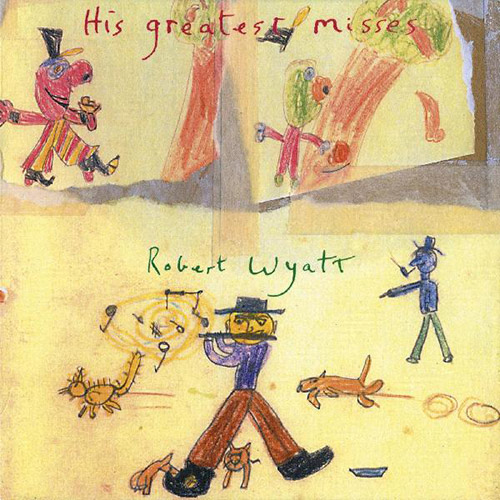
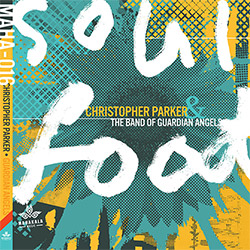


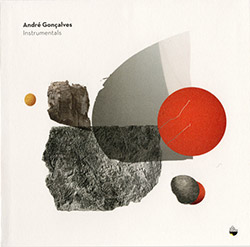
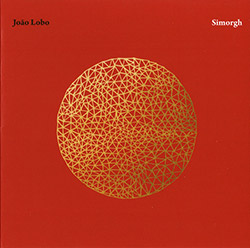

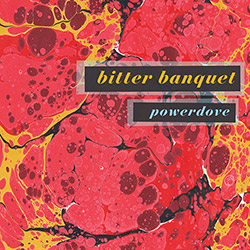
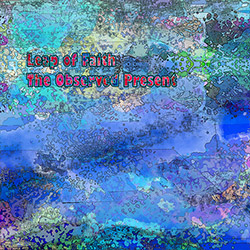
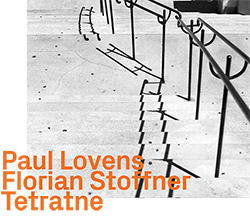
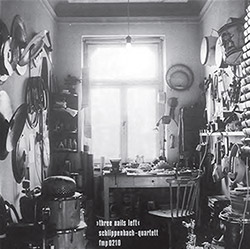

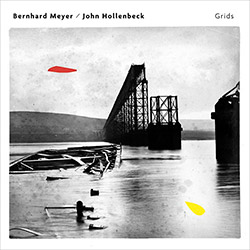
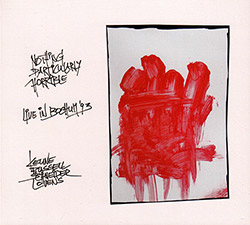


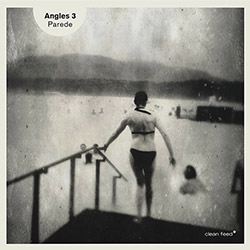
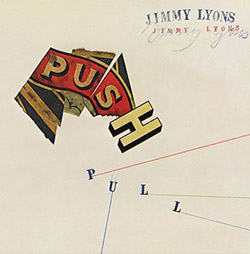
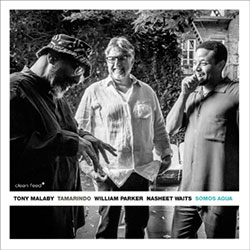


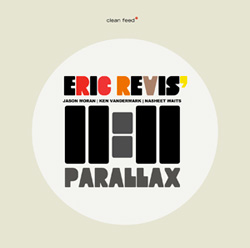
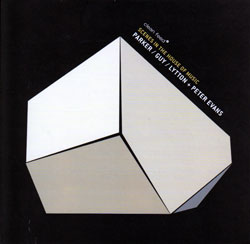
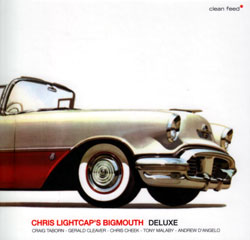
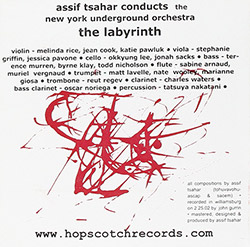
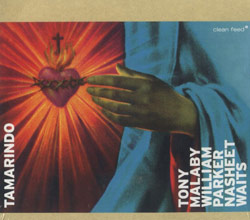
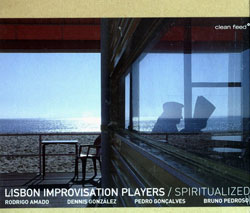


![Guy, Barry / Ken Vandermark: Occasional Poems [2 CDs]](https://www.teuthida.com/productImages/misc4/34849.jpg)
![Novoa / Carter / Mela Trio: Vol.1 [VINYL]](https://www.teuthida.com/productImages/misc4/35236.jpg)


![Elephant9 : Mythical River [VINYL]](https://www.teuthida.com/productImages/misc4/34624.jpg)
![Evans, Peter (Evans / Eldh / Black): Extra [VINYL]](https://www.teuthida.com/productImages/misc4/35279.jpg)

![McPhee, Joe: Straight Up, Without Wings [BOOK]](https://www.teuthida.com/productImages/misc4/35454.jpg)
![Jeck, Philip: rpm [2 CDs]](https://www.teuthida.com/productImages/misc4/35455.jpg)













![Barker / Parker / Irabagon: Bakunawa [VINYL]](https://www.teuthida.com/productImages/misc4/35533.jpg)
![Blaser, Samuel / Marc Ducret / Peter Bruun: Dark Was The Night, Cold Was The Ground [VINYL 10-inch]](https://www.teuthida.com/productImages/misc4/35492.jpg)








![Warren, Kenny (Warren / Hoffman / Ellman): Sweet World [VINYL]](https://www.teuthida.com/productImages/misc4/35451.jpg)




![Blake, Ran / Dave Knife Fabris: Live Amsterdam 2006, First Visit [CD + POSTCARDS]](https://www.teuthida.com/productImages/misc4/35275.jpg)













![DNS: Taking Big Bites Of The Khandas Three Cafes Deep [2 CDs]](https://www.teuthida.com/productImages/misc4/35334.jpg)




![Cleaver, Gerald: The Process [VINYL]](https://www.teuthida.com/productImages/misc4/34966.jpg)




![Alva Noto: HYbr:ID II [VINYL 2 LPs]](https://www.teuthida.com/productImages/misc4/35201.jpg)

![Baron, Derek / Luke Martin: Distinct and Concealed [CASSETTE + DOWNLOAD]](https://www.teuthida.com/productImages/misc4/35079.jpg)

![Lyle, Erica Dawn : Colonial Motels [CASSETTE + DOWNLOAD]](https://www.teuthida.com/productImages/misc4/35080.jpg)









![Sanna, Claudio: Compositori Sardi Contemporanei II [2 CDs]](https://www.teuthida.com/productImages/misc4/35317.jpg)







![Zurria, Manuel: Fame di Vento [3 CDs]](https://www.teuthida.com/productImages/misc4/35167.jpg)

![Granberg, Magnus / Nattens Inbrott / Skogen: Holde Traume, Kehret Wieder! [2 CDs]](https://www.teuthida.com/productImages/misc4/35038.jpg)
![Frey, Jurg: Outermost Melodie [2 CDs]](https://www.teuthida.com/productImages/misc4/35039.jpg)

![Pavone, Jessica: Reverse Bloom [VINYL]](https://www.teuthida.com/productImages/misc4/34895.jpg)




![Modney (Modney / Wooley / Gentile / Roberts / Pluta / Symthe / ...): Ascending Primes [2 CDs]](https://www.teuthida.com/productImages/misc4/34852.jpg)









![Elephant9 with Terje Rypdal: Catching Fire [VINYL 2 LPs]](https://www.teuthida.com/productImages/misc4/35355.jpg)
![Deerlady (Obomsawin, Mali / Magdalena Abrego): Greatest Hits [VINYL]](https://www.teuthida.com/productImages/misc4/34876.jpg)




![Haino, Keiji: Black Blues [2 CDs]](https://www.teuthida.com/productImages/misc4/35109.jpg)



![Surplus 1980: Illusion of Consistency [CD]](https://www.teuthida.com/productImages/misc4/35069.jpg)
![Staiano, Moe: Away Towards the Light [VINYL + DOWNLOAD]](https://www.teuthida.com/productImages/misc4/35037.jpg)



![Caveira (Gomes / Sousa / Abras / Ferrandini): Ficar Vivo [VINYL]](https://www.teuthida.com/productImages/misc4/34643.jpg)
![Gregg, J. J. / David Van Auken: Lunar Prairie [CD w/ DOWNLOAD]](https://www.teuthida.com/productImages/misc4/34611.jpg)

![Coultrain: Mundus [VINYL]](https://www.teuthida.com/productImages/misc4/32439.jpg)
![Mattin: Songbook #6 [VINYL]](https://www.teuthida.com/productImages/misc4/27317.jpg)
![Punkappella: Wake Up [7-inch VINYL]](https://www.teuthida.com/productImages/misc4/17519.jpg)
![Residents, The: WARNING: UNiNC.: Live And Experimental Recordings 1971-1972 [VINYL 2 LPs]](https://www.teuthida.com/productImages/misc4/31521.jpg)
![Coultrain: Phantasmagoria [VINYL]](https://www.teuthida.com/productImages/misc4/30142.jpg)
![Lennon, Sean Ono: Asterisms [VINYL]](https://www.teuthida.com/productImages/misc4/34517.jpg)

![Coley, Byron: Dating Tips for Touring Bands [VINYL]](https://www.teuthida.com/productImages/misc4/17906.jpg)

![Lost Kisses: My Life is Sad & Funny [DVD]](https://www.teuthida.com/productImages/misc4/lostKissesDVD.jpg)